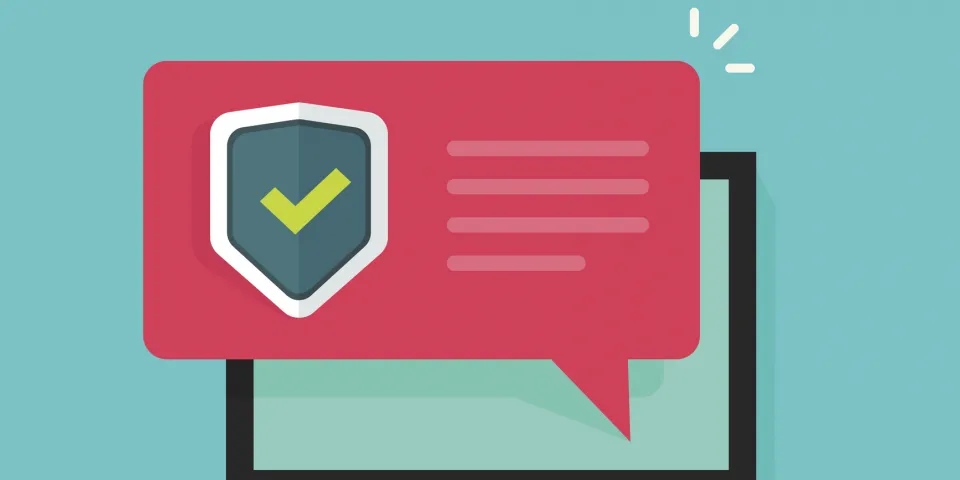Latest
5 Cybersecurity Tips Everyone Should Know
Dec 7, 2020

From cell phones and computers, cybersecurity has become increasingly important as more people rely on internet-connected devices. Cybersecurity is what protects your devices from hackers and viruses and ensures confidentiality.
As fancy as cybersecurity sounds, you don’t need an extensive background in technology to prevent criminal use on your devices. Here are 5 easy cybersecurity tips that everyone should follow.
1. Keep your software up to date
You might get impatient waiting for a software update to finish on your phone or laptop, but it’s worth your time. Software updates often include new features and are used to strengthen your software’s stability and enhance security. Since viruses are constantly changing, your device’s software must also adjust to improve cybersecurity.
When companies discover holes in their security, an update is an ideal way for them to prevent hackers from stealing data and other information from your devices. So, next time you’re hesitant about enduring a long update on a phone or personal computer, consider the risks of having outdated software.
2. Create strong passwords
One of the most common ways hackers break into computers and other devices is by guessing the owner’s passwords. When you create a strong password, it can protect you from cybercriminals gaining unauthorized access.
The best way to create a quality password is to:
- Use 12 characters or more
- Use lower case and capital letters
- Include numbers
- Include a symbol
Another common mistake made during password creation is using the same password for every device or account login. Make sure you’re creating a different one for all your accounts and electronics.
Though it may be difficult to remember all of them on your own, you can use a password management tool to avoid constantly confusing one password with another.
Also, consider using multistep authentication, which is offered by many companies. This method adds an extra layer of security because you would, for example, need to enter a code that is sent to your email or texted to your phone in addition to the password.
3. Backup your data regularly
Have you ever lost an assignment because you forgot to click the save button? The same thing can happen to your data without a proper backup. When a virus attacks your device, its hard drive crashes or it is damaged, it can suddenly lose all its data, including important documents and photos. Backing up your device can avoid such a calamity and should be done regularly.
You can back up data by using:
- Cloud backup
- External hard drives
- Flash drives
- Backup services
4. Use antivirus software
Viruses cause issues such as slowing down your device, damaging or deleting files and triggering hard drive crashes. Antivirus software protects your devices from viruses by detecting and removing them before they cause damage.
In addition to virus protection, antivirus software can also block spam and ads, defend your device from hackers, protect your data and files and act as security for other online cyber threats.
When selecting an antivirus software, don’t just base your decision on price. You should consider the software’s email scanning abilities, download protection, speed, malware scan ability, compatibility with your device and privacy policy to get a bang for your buck.
Some of the top antivirus software include:
- Norton
- McAfee
- Intego
- Avira
- TotalAV
5. Use public Wi-Fi with caution
Though public Wi-Fi has expanded in the past few years, the cybersecurity threats that go along with it are still a problem. Hackers can create their own networks or use other public networks to steal people’s information without a user knowing.
When using public Wi-Fi, it’s best to avoid sensitive activities like making online purchases or online banking. You should also look for a network that requires a password. Most public places like cafes or stores will have the password available for people after they make a purchase or when requested by a potential customer.
Another way to protect your device when using public Wi-Fi is to make sure the websites you visit are secure, use a firewall or set up a virtual private network (VPN).
Interested in what you can do with a cybersecurity degree? Visit Herzing University’s website to learn more about our cybersecurity program!
Learn More About Our Cybersecurity Degree
BLS pay estimates calculate the median annual wage for various occupations. Per the BLS the median wage for an occupation is: "The wage at which half of the workers in the occupation earned more than that amount, and half earned less. Median wage data are from the BLS Occupational Employment and Wage Statistics survey." Bureau of Labor Statistics (BLS), U.S. Department of Labor, Occupational Outlook Handbook 2024. BLS median wage estimates do not represent entry-level wages and/or salaries. Multiple factors, including prior experience, age, geographic market in which you want to work, and degree level and field, will affect career outcomes, including starting salary and earnings as an experienced employee. Herzing neither represents that its graduates will earn the median salaries calculated by BLS for a particular job nor guarantees that graduation from its program will result in a job, promotion, particular wage or salary, or other career growth.
Latest
Recent Blog Posts
Subscribe to our Newsletter
Get the latest news you need to know, from study hacks to interview tips to career advancement. Have it delivered right to your inbox biweekly.








